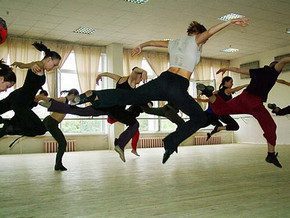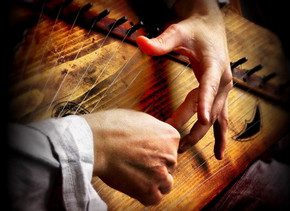For a musician: how to neutralize stage excitement?
Excitement before a performance – so-called stage anxiety – can ruin a public performance, even if it is the fruit of long and hard rehearsals.
The thing is that on stage the artist finds himself in an unusual environment – a zone of discomfort. And the whole body instantly responds to this discomfort. Most often, such adrenaline is useful and sometimes even pleasant, but some people may still experience increased blood pressure, tremors in the arms and legs, and this has a negative impact on motor skills. The result is that the performance does not go at all as the performer would like.
What can be done to reduce the influence of stage anxiety on a musician’s performing activity?
first and the main condition for overcoming stage anxiety is experience. Some people think: “The more performances, the better.” In fact, the frequency of the public speaking situation itself is not so important – it is important that there are speeches, that purposeful preparation is carried out for them.
Second an equally necessary condition – no, this is not a perfectly learned program, this is the work of the brain. When you get on stage, don’t start playing until you’re sure you know what you’re doing. Never allow yourself to play music on autopilot. Control the entire process, even if it seems impossible to you. It really just seems to you, don’t be afraid to destroy the mirage.
Creativity and mental activity itself distract from anxiety. Excitement simply does not disappear anywhere (and will never disappear), it just has to fade into the background, hide, hide so that you stop feeling it. It will be funny: I see how my hands are shaking, but for some reason this shaking does not interfere with playing the passages cleanly!
There is even a special term – the optimal concert state.
The third – play it safe and study the works properly! Common fears among musicians are the fear of forgetting and the fear of not playing something that has been poorly learned… That is, some additional reasons are added to the natural anxiety: anxiety over poorly learned passages and individual places
If you have to play by heart, it is very important to develop non-mechanical memory, or in other words, muscle memory. You can’t know a work with just your “fingers”! Develop logical-consecutive memory. To do this, you need to study the piece in separate pieces, starting from different places.
Fourth. It lies in an adequate and positive perception of oneself as a performer. With the level of skill, of course, self-confidence grows. However, this takes time. And therefore it is important to remember that any failure is forgotten by listeners very quickly. And for the performer, it will serve as an impetus for even greater efforts and efforts. You shouldn’t engage in self-criticism – it’s simply indecent, damn you!
Remember that stage anxiety is normal. You just need to “tame” him! After all, even the most experienced and mature musicians admit that they always feel nervous before going on stage. What can we say about those musicians who play all their lives in the orchestra pit – the eyes of the audience are not focused on them. Many of them, unfortunately, are almost unable to go on stage and play anything.
But young children usually do not have much difficulty performing. They willingly perform, without any embarrassment, and enjoy this activity. What is the reason? Everything is simple – they do not engage in “self-flagellation” and treat the performance simply.
Likewise, we, adults, need to feel like little children and, having done everything to reduce the effect of stage excitement, receive joy from the performance.




